
You can support Terra Relicta by donating! Please, do so, and thank you!

Interview with: Wulf
Conducted by: T.V.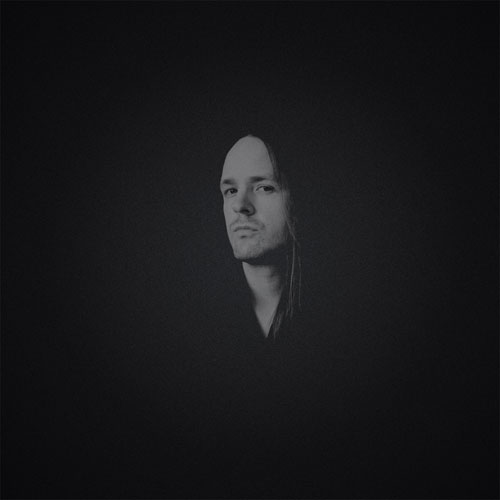 Neurotech, what to say about this Slovenian one-man cyber/electro/symphonic/"xy" metal master? Those of you who follow Terra Relicta webmagazine should already know a lot about it and more. But yet the mastermind behind Neurotech, Wulf, is always full of surprises. Recently the new album entitled In Remission was released (read the review over HERE), an album featuring seven masterpieces which mark some kind of a artistical climax for Neurotech. This is already the fifth full-lenght, ok, if we count here also the magnificient The Decipher Volumes (a collection of three EP's) than we can say it's his sixth. There were also a lot of singles, some EP's and a couple of proper epic symphonies released in between. Now, after the fully instrumental album Evasive, released in 2015, In Remission is a return to a more classic Neurotech sound which developed to a certain form mostly on in 2014 released Infra Versus Ultra. "In Remission flows in the vein of peculiar symbiosis of film score music, trance, symphonic metal, futurepop and in currently popular retrowave", Ines wrote in the review and I can't agree more. Yes, Wulf, who's the composer, lyricist, producer and everything else needed, is since 2007 when he formed Neurotech in some kind of an artisticlal peak, always developing further and you can never know what to expect to hear next time. Nevertheless, Neurotech gained some kind of almost cult status amongst the fans of the genre and I believe that we can expect even more great things from this act in the future. I had to meet with Wulf for a talk about his latest creation, but as you'll read the conversation became an in-depth interview about many things considering Neurotech.
Neurotech, what to say about this Slovenian one-man cyber/electro/symphonic/"xy" metal master? Those of you who follow Terra Relicta webmagazine should already know a lot about it and more. But yet the mastermind behind Neurotech, Wulf, is always full of surprises. Recently the new album entitled In Remission was released (read the review over HERE), an album featuring seven masterpieces which mark some kind of a artistical climax for Neurotech. This is already the fifth full-lenght, ok, if we count here also the magnificient The Decipher Volumes (a collection of three EP's) than we can say it's his sixth. There were also a lot of singles, some EP's and a couple of proper epic symphonies released in between. Now, after the fully instrumental album Evasive, released in 2015, In Remission is a return to a more classic Neurotech sound which developed to a certain form mostly on in 2014 released Infra Versus Ultra. "In Remission flows in the vein of peculiar symbiosis of film score music, trance, symphonic metal, futurepop and in currently popular retrowave", Ines wrote in the review and I can't agree more. Yes, Wulf, who's the composer, lyricist, producer and everything else needed, is since 2007 when he formed Neurotech in some kind of an artisticlal peak, always developing further and you can never know what to expect to hear next time. Nevertheless, Neurotech gained some kind of almost cult status amongst the fans of the genre and I believe that we can expect even more great things from this act in the future. I had to meet with Wulf for a talk about his latest creation, but as you'll read the conversation became an in-depth interview about many things considering Neurotech.
T.V.: Hi Wulf! Congratulations for releasing a new album, one of your best so far in my opinion, and I wonder how are you satisfied with it?
Wulf: Yes, I'm happy that In Remission is finally out. This album is a bit different from anything I did before and it was quite a big process to make it like it is. It was written on an autopilot, like all my works so far. All I can tell now is that I'm happy with the end result and that it is finished.
T.V.: Did you use the same compositional approach like always? Were there used same instruments, programs,...?
Wulf: Compositional process was the same, but there are also a lot of new synths, new drums, new mixing/mastering techniques, there's a new approach with vocals, because I wanted them to be much more organic, not that much auto-tuned, even though I like that effect, but for In Remission I wanted it a bit different with more emphasis on feeling, yet it's not so catchy and popish like were the last two records with vocals. It was an experiment if I can say so, it wasn't in my comfort zone, but I like it how it turned out in the end. It's true that there was a lot of work put into this album which I didn't expect in the beginning, but ok, I'm used to it.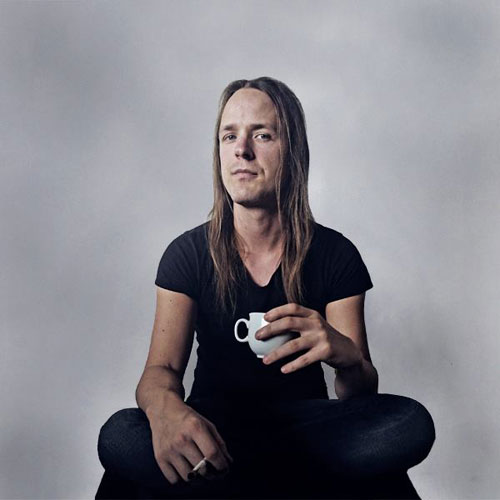 T.V.: I find it pretty interesting how masterfully you blend together different elements, from pop, trance, many symphonic and electronic stuff with metal and yet much more...
T.V.: I find it pretty interesting how masterfully you blend together different elements, from pop, trance, many symphonic and electronic stuff with metal and yet much more...
Wulf: I think that this is connected with my DNA. I started listening to music with prog rock when I was six years old, because my parents are fans of this style. Then, when I was a teenager I was in the phase of extreme metal, mostly death and black metal, also in my early twenties I was a huge metal fan, but then slowly I felt bored with it and started exploring further. I incorporate all this stuff into my music, every thing is a building block. To tell you the truth, I don't hear any difference between classical music, metal or trance, for me everything is just music that creates kind of a special feeling, its own nuances.
T.V.: I hear a lot of crossgenre music these days and Neurotech's is one of those rare cases where all of those elements are put into such a coherent and harmonic flowing sound.
Wulf: I think that this is connected with my musical taste. I like music to be melodic and mellifluous. The most important thing is to massage all those elements together and it takes a lot of time to combine everything into such a coherent sound. It takes a lot of hours of intense listening and working on arrangements to make the things like that and not just put them one over another. Of course it depends also on the mixing, but the most important thing is the general feeling and knowing what you really want from a certain song. For instance, some songs that are based mainly on the atmosphere need to have certain elements more silent than others, but not only, already with the arrangements you need to calm down the whole thing. On the other hand those more melodic songs have in the frontline a melody and demand completely different techniques. You know, experience matters in the end, years of making such music, from electronic to symphonic and metal, makes it possible to achieve that necessary "know how". Sometimes you need to go with your head through the wall to reach a desired goal.
T.V.: After your previous album, Evasive, which was completely instrumental, this time it's obvious that you worked a lot on vocal arrangements that are more elaborate than ever. Any additional vocal training involved?
Wulf: I trained my vocals a bit. There was a lot of work on recording them, imagine that I was doing just vocals since January until one week before the album release. So, if Evasive was entirely an instrumental album, it was a natural way for me that In Remission must be filled with vocals more than any other album before. In Remission is a content driven album, it's story with an intro, core and ending, actually all of my albums are like that in a certain way, but this one takes it to another level. So, the emphasis on vocals had to be much more evident, because also lyrics are written in a way that there's a storyline behind it. Like I said it before, this album claimed for more organic vocal approach, for more natural and personal one as well. All in all, there was a lot of work with it, with lines, arrangments, vocal melodies, then with recording, producing and mixing it, it was quite a complex work to make it done properly and I like it how it turned out in the end.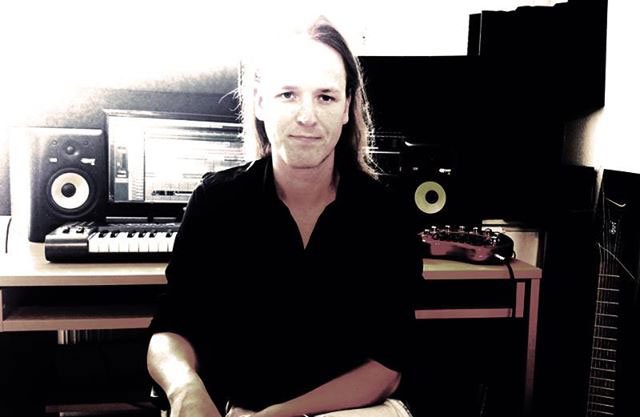 T.V.: I feel this album to be a bit more emotional, is this connected with certain events in your life...
T.V.: I feel this album to be a bit more emotional, is this connected with certain events in your life...
Wulf: My music is a product of that very time when it is written, so yes, and I try not to censor myself. I don't do dishonest things, there's a lot of integrity and I try to be sincere. My albums and songs are my sonic diaries.
T.V.: What is hidden behind the albums title In Remission?
Wulf: In Remission has a double-edged meaning. I find this word connection pretty interesting, it's kind of a paradox. If you look at it from a medical side, it can represent a pacient in remission after he's cured from cancer and he's happy with it, but still, life is not eternal and being temporary cured is just a small prolongation. And that chances for a relapse are still present, so it's more of a temporary fix of an ongoing problem/situtation. I find this things pretty fascinating if observed from philosophical side. Still, I find it difficult to explain the meaning of the title properly because it deals with some personal stuff which I don't to want to reveal so I like it to be more ambigious.
T.V.: Do you find the thematics for lyrics solely from your life and events around it or are there any other inspirations?
Wulf: It's a mix of many things. Mainly there are my life experiences, but as well I find inspiration in books that I read, in movies, also in music in general. In a way my music is the main principle for lyrics when I'm writing. When I already have just a roughly done music for a track I start recording vocals, even if it's just gibberish, but it gives me an option to fill the blanks with lyrics and many times I'm very surprised about the result. There's a lot of subconscious put into lyrics at first point, but then I start to polish and analyze things and make things more objective, analytical and coherent. But you know, I don't like to give any deeper explanations of my lyrics, I like to leave them a bit ambiguous so anybody can find his own meaning in them.
T.V.: Even though the tracks on the album are connected into an integrigty, is there a track that you can expose as your favorite one or as more important than any other?
Wulf: No. I always treat my albums like one single song. Every single track has the same amount of attention put into it. I can't really expose one or two above others. For me all of them have the same importance and I don't have any preferences.
T.V.: Lately there's always present some kind of duality in your works, innitially seen on the album artworks. On the minimalistic front cover artwork of In Remission that's even more evident...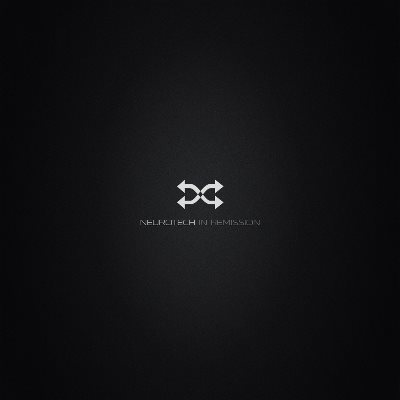 Wulf: This is the first time that I wanted to have the front cover artwork that's actually not a cover artwork. I wanted to have some kind of an artwork that tells nothing. We are living in a period where albums covers have a lot of importance, mostly they are done in the way to give you an insight of what the album is sounding alike just by looking at the front cover. I didn't want to do that, contrary, I wanted that people concetrate on albums content and not on the superficial looks. Those two lines represent some kind of a crossroad with blackness in between, it represents In Remission, everything is in perception. Even if the design is pretty much minimalistic, there were many different versions done. In the end it has a hidden meaning and some weight, but absolutely it's not a kind of a brutally photoshoped massacre thing which tends to be the norm these days.
Wulf: This is the first time that I wanted to have the front cover artwork that's actually not a cover artwork. I wanted to have some kind of an artwork that tells nothing. We are living in a period where albums covers have a lot of importance, mostly they are done in the way to give you an insight of what the album is sounding alike just by looking at the front cover. I didn't want to do that, contrary, I wanted that people concetrate on albums content and not on the superficial looks. Those two lines represent some kind of a crossroad with blackness in between, it represents In Remission, everything is in perception. Even if the design is pretty much minimalistic, there were many different versions done. In the end it has a hidden meaning and some weight, but absolutely it's not a kind of a brutally photoshoped massacre thing which tends to be the norm these days.
T.V.: It's pretty elegant and it has an impact. Who made it?
Wulf: I did it together with designer Martin Rozman. I proportionately create different artworks for my albums in photoshop since the first day when I start working on a certain album. Then I send those drawings to a designer to give it a final polish.
T.V.: You decided to not release the album on physical edition. How so?
Wulf: I took this decion because even digital downloads are now deteriorating, streaming platforms became much more popular and that consequently had a huge negative impact on digital downloads and even more on sales of physical albums, now more than ever. With every album that I ever released I went into financial minus, you can hardly sell any CD this days, and I simply had to take this decision. And truth to be told, I'm not some kind of a nostalgic person that wants to have at any costs a physical album out, I rather move forward with time. Don't get me wrong, I would still like to release CD's if they would sell, but you must understand that I don't have enough money to constantly lose it.
T.V.: Don't you think that having a physical release of your own album is like a kind of a monument, a culmination of your work when you hold it in your hands?
Wulf: I agree on that. But like I said, I can't do it, it's too expensive for me and I can't afford to lose more money on that. I don't have any other excuse. If sales of albums don't cover neither its design costs, what about the manufacturing side of it,... After five albums I said that it's enough. Maybe in the future I'll release some kind of a box set. When I'll have more albums out I will put them together and start a crowdfunding campaign to release it that way, something like I did with Infra Versus Ultra. Imagine that I release almost two albums in one year...
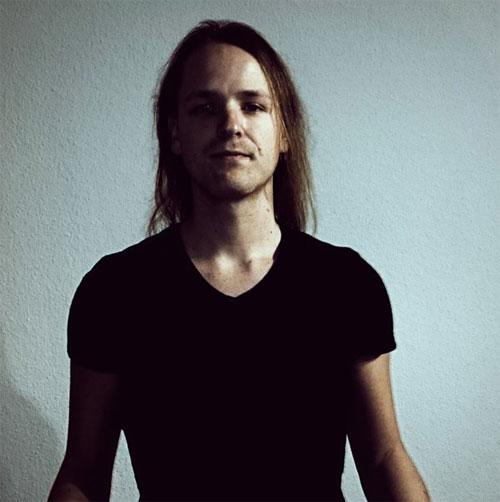 Wulf: That's true, but those who follow and understand Neurotech know that every new album is different. There was a lot of metal in my past albums, there still is to a certain point, but there's hardly any primal aggression and growl vocals are gone forever. I'm done with it, I don't listen to that kind of music anymore, I'm not passionated about that kind of music so therefore there's no need to create what I don't really like or believe in.
Wulf: That's true, but those who follow and understand Neurotech know that every new album is different. There was a lot of metal in my past albums, there still is to a certain point, but there's hardly any primal aggression and growl vocals are gone forever. I'm done with it, I don't listen to that kind of music anymore, I'm not passionated about that kind of music so therefore there's no need to create what I don't really like or believe in.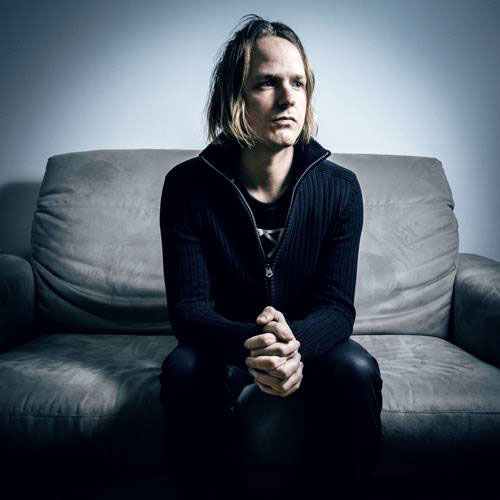 DI tracks, and Matic is responsible for the reamping of the DI tracks through an amp and a cabinet, which is then blended with the digital one. In the end this results in the massive guitar sound, combining the benefits of digital and analog. Not to mention that he is the only guy beside me who gets to hear a Neurotech album before it goes live, so yeah, he is my second pair of ears and tells me a lot of times if the mixes or masters could use improvement.
DI tracks, and Matic is responsible for the reamping of the DI tracks through an amp and a cabinet, which is then blended with the digital one. In the end this results in the massive guitar sound, combining the benefits of digital and analog. Not to mention that he is the only guy beside me who gets to hear a Neurotech album before it goes live, so yeah, he is my second pair of ears and tells me a lot of times if the mixes or masters could use improvement.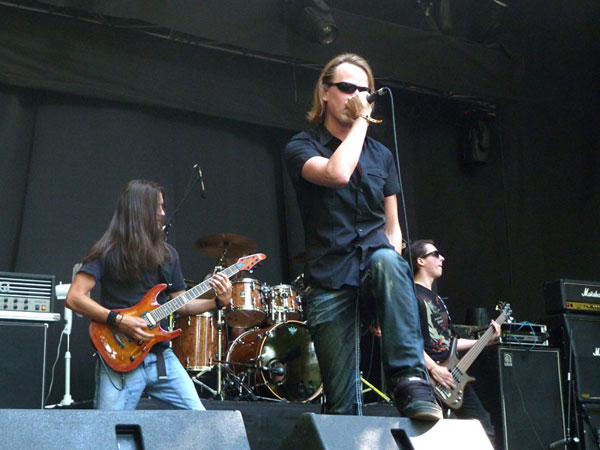 approval seeking type of person and I don't want to constantly bombard people with myself to somehow feed up my wounded ego. I still think that the word of mouth is the biggest promotion for things that I do and that is proved by the internet. People share what they like and that's how Neurotech became what it is today. It was a slow and tedious process to achieve this status, but a worth one.
approval seeking type of person and I don't want to constantly bombard people with myself to somehow feed up my wounded ego. I still think that the word of mouth is the biggest promotion for things that I do and that is proved by the internet. People share what they like and that's how Neurotech became what it is today. It was a slow and tedious process to achieve this status, but a worth one.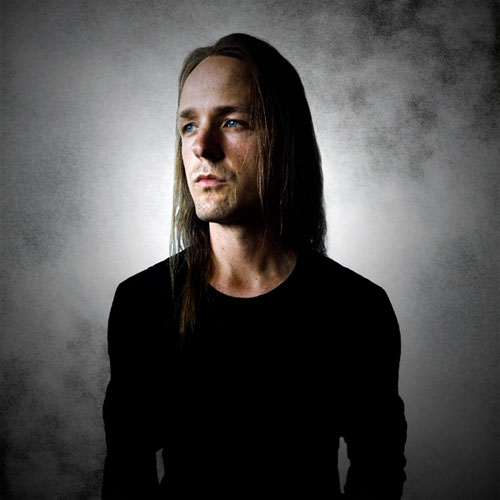 T.V.: I'm a huge fan of the Decipher Vol. 2, because of male-female vocal duet. Maybe something in that direction?
T.V.: I'm a huge fan of the Decipher Vol. 2, because of male-female vocal duet. Maybe something in that direction?Neurotech links: Official website, Facebook, Bandcamp